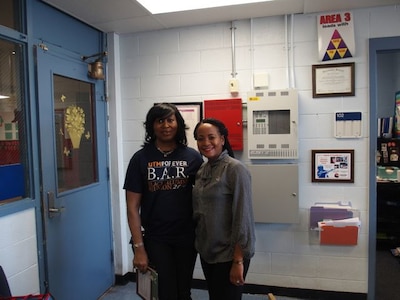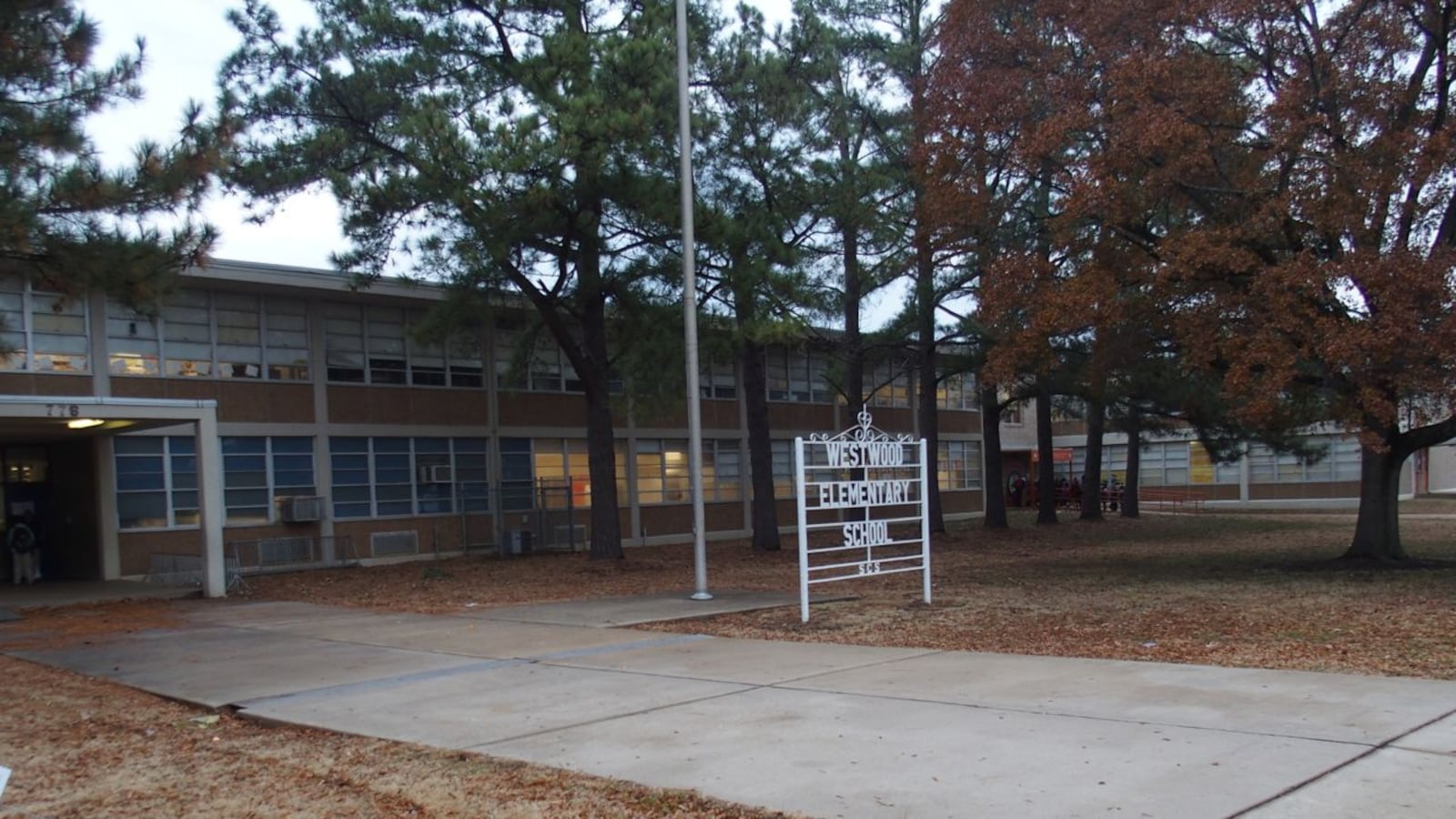Achievement School District officials talk of having a “sense of urgency” to turn around the state’s worst-performing schools. So Shelby County Schools Superintendent Dorsey Hopson says he doesn’t understand why they assume control of schools incrementally rather than all at once.
For going on three years now, the ASD has allowed several of its charters to grow by just one to two grades at a time, giving them a running start to perfect lesson plans, recruit teachers, raise money, and pace enrollment growth.
Hopson says this has created an awkward, demoralizing, and expensive situation for the staff left at the traditional public schools, who have to run the rest of the building for several years, waiting for the charter school to take the reins. They know their jobs will eventually be eliminated, and the district has to continue paying for secretaries, assistant principals, and utility bills despite a rapidly dwindling enrollment.
That money should instead be reinvested in the classroom, Hopson says.
Now Hopson says he will propose to his board in the coming weeks to pull hundreds of the remaining Shelby County students out of these schools and send them to nearby schools run wholly by his district.
The ending of colocation with ASD schools stands to be the next battle in the enrollment war that’s engulfed Memphis in recent years.
A growing number of teachers and parents complain that the pending proposal to end colocation will cause unnecessary disruption and confusion for impoverished neighborhoods that have seen rapid administrative turnover, the changing of school names, schools shuttered, and students shuffled across gang lines.
The district’s administrators have repeatedly closed schools and rezoned vast segments of its district in response to enrollment erosion caused by ASD school takeovers, charter school growth, and six municipalities creating their own separate districts. That’s created deep fissures between parents, teachers, and board members, all of whom have sought some sense of stability to build out new academic models to improve schools.
Learning to live together
After Chalkbeat visited a co-located school and interviewed several educators in co-located situations in recent weeks, a complex picture emerged of the benefits and setbacks of placing a charter school in the same building as a traditional public school.
Many charter and traditional public school educators said they didn’t understand how to work with staff on the other side of the building because district leaders didn’t give them clear direction on what services and initiatives could be shared between the schools. That has hindered opportunities for the kind of robust collaboration that has led to test-score gains at co-located charter and traditional schools in other cities, including Nashville.
For example, at Westwood Elementary, co-located with Freedom Prep, both principals are reading “Great Habits, Great Readers,” a book about boosting students’ reading abilities, an area the neighborhood’s students have struggled with in recent years. But the staff at Westwood didn’t participate when Freedom Prep bought the book’s co-author, Aja Settles, to the school recently.
Co-located schools in other districts share professional development services for teachers, curriculum and even school colors, mascots, and sports teams.
Most parents who would be affected were unaware of Hopson’s proposal to end colocation, although he has said since his hiring in 2013 in public and private meetings that he doesn’t like the arrangement. Over the last two months, since the ASD announced schools they are looking to absorb next year, many parents have focused their efforts on protesting the potential takeover of their schools.
Many didn’t realize that if their school were to be taken over, their child would not attend the new charter school but instead zoned to a different traditional public school.
For some SCS board members, ending colocation will send a clear message to parents: Chose us or the ASD.
“This is an abusive relationship,” quipped Shelby County Schools board member Stephanie Love. “We’re taking our kids and leaving.”
Cardell Orrin, the Memphis city director for Stand for Children, a parent and teacher advocacy group (he is also the chair of the board for Freedom Prep, a charter organization), said that’s a false analogy.
“When you enter into a divorce, you have a choice on how to do that,” he said. “We have to deal with the children…We can either say, ‘I’m going to hurt the other parent and not think about what’s best for the children,’ or we can say, ‘Let’s figure out the adult problems to figure out what’s best for the kids.”
‘A sense of urgency’
The proposed ending of colocation has rankled ASD officials and leaders of some of its flagship charter schools such as YES Prep, KIPP, and Freedom Prep, which specifically design its turnaround models for colocation situations. KIPP Memphis unexpectedly pulled out of this year’s matching process when the ASD assigned it the entire South Side Middle School (“This would have caused KIPP to divert from its middle school model,” said Jamal McCall, the charter’s executive director in a letter addressed to parents.).
Many fear that Hopson won’t rezone upper grades back to the charter schools when they begin to serve those students.
The ASD, which has had mixed results, said its most academically successful charter schools have phased-in grade levels.
“We do bring a sense of urgency to our work every day, but this urgency must also be supported with a thoughtful strategy and long-term commitment,” said Elliot Smalley, the ASD’s district’s chief of staff. “The phase-in process is a temporary one. And if it gets charters to where, within a few years, they’re successfully serving every child in a whole school and they’re positioned to do this for decades, we think it’s worth it.”
Of the district’s 22 schools, almost a third have phased in schools, and the district plans to announce this week another potential six to phase-in next year.
Westwood Elementary, which received some of the lowest test scores in the state under Shelby County Schools last year, was taken over this year by the ASD, which handed the school’s kindergarten and first grades over to Freedom Prep. This left Westwood’s principal Gloria Golden, to operate the rest of the school. Freedom Prep is run by Donique Nobles, an energetic former Teach for America recruit.
Both principals said they heard “horror stories,” both national and local, about colocation: Young, inexperienced and naive charter staff fighting with lazy, disinterested traditional public school staff over space and resources.
But both said they were surprised after their first meeting, that they had so much in common and few, if any of those stereotypes were real. They pledged to make the colocation work.
“We’ve come together so people can see us as one,” Freedom Prep’s Nobles said. “We wish we didn’t have to be here. But in the midst of what’s happening, I couldn’t ask for a better situation.”

The school, a two-story brick building shaped like a giant W, is situated in a working class community in far-flung south Memphis close to the Mississippi border. The majority of the school’s students walk to school.
Contrasts and complements
In the Freedom Prep section, hallways are painted blue and orange, the school’s colors and lined with college pennants. Students, dressed in striped ties and sweaters, walk around on blue and orange tape that wrap the hallway for children to walk on.
Westwood Elementary, Golden has run or the last eight years, serves grades 2-5 and operates the rest of the building. Its hallways are painted red white, and blue, the school’s colors, and also lined with college pennants. Students wear blue and white polo shirts and khaki pants.
Because of a colocation agreement signed at the beginning of the year, the two schools share the cafeteria, playground, and auditorium. Freedom Prep students eat breakfast at the school’s cafeteria and lunch in their classroom while Westwood students eat in the cafeteria.
Classroom observations revealed starkly different teaching models for students who lived on the same block and, in many instances, in the same homes.
Freedom Prep staffs all of its classrooms with two teachers and regularly pulls students out for small group instruction. The curriculum was written over the summer by the teachers.
Westwood adheres to the district’s traditional classroom model (one teacher lecturing to a group of students) and largely adopts the district’s curriculum. Golden changed the school’s staffing so that students would get instruction from a teacher who specialized in one subject rather than one who covered several subjects.
The two principals have made efforts to work together.

When Mayor A C Wharton came to the Westwood Elementary to read to the students as part of the school’s reading program, and when the local fire department came to teach students how to “Stop Drop and Roll,” Golden invited Freedom Prep’s students. A counselor from Westwood shared strategies on ways to help discipline a child. Freedom Prep staff watches over Westwood children in the morning before Westwood’s doors open.
But Westwood has experienced challenges.
Half of Golden’s staff left over the summer (one went to work for Freedom Prep), and because few teachers want to work for a school that they know will be closed in less than three years, she could only manage to replace them with teachers with no experience. One of those teachers quit last month, leaving Golden scrambling to find a replacement.
“I felt like this was an opportunity to work even harder for our students,” Golden said about the colocation. “My job is still not done. I’m going to ride Westwood out.”


